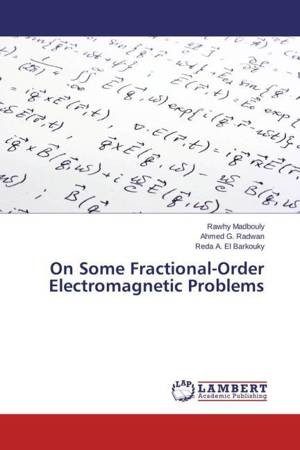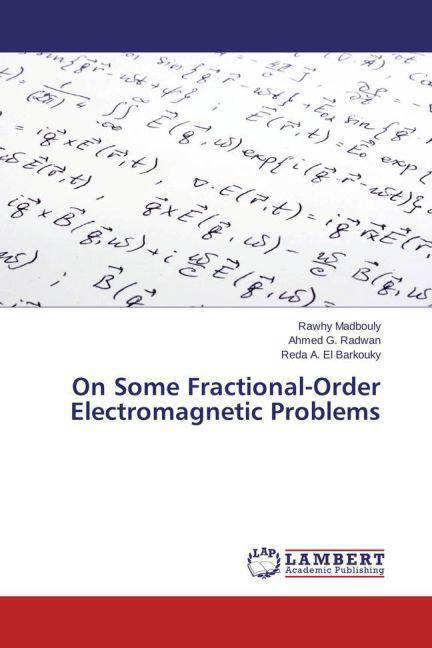
Bedankt voor het vertrouwen het afgelopen jaar! Om jou te bedanken bieden we GRATIS verzending (in België) aan op alles gedurende de hele maand januari.
- Afhalen na 1 uur in een winkel met voorraad
- In januari gratis thuislevering in België
- Ruim aanbod met 7 miljoen producten
Bedankt voor het vertrouwen het afgelopen jaar! Om jou te bedanken bieden we GRATIS verzending (in België) aan op alles gedurende de hele maand januari.
- Afhalen na 1 uur in een winkel met voorraad
- In januari gratis thuislevering in België
- Ruim aanbod met 7 miljoen producten
Zoeken
On Some Fractional-Order Electromagnetic Problems
Rawhy Madbouly, Ahmed G. Radwan, Reda A. El Barkouky
Paperback | Engels
€ 71,45
+ 142 punten
Omschrijving
In this book, we focus on investigating the effect of imposing fractional-order time derivatives on the conventional Maxwell's equations that control the behavior of electromagnetic fields. We apply the modified formulas of Maxwell's equations on an example of a rectangular waveguide showing that imposing the fractional parameters such as the cutoff frequency and the intrinsic impedance which is shown to be complex in value. The concept of the fractional curl operator introduced a few years ago provides additional intermediate solutions to an electromagnetic problem rather than the canonical solutions. In this book, this concept of fractional curl operator is restudied, taking into consideration the fractional-order time derivatives in Maxwell's equations. The modified analysis adds two extra fractional parameters onto the conventional curl concept which increases the number of degrees of freedom to control or optimize the design problem. Moreover, this book demonstrates some fundamentals concerning the study of the Fractional-order Transmission Line (FTL) operation. This book also restudies the TLM in the fractional order sense.
Specificaties
Betrokkenen
- Auteur(s):
- Uitgeverij:
Inhoud
- Aantal bladzijden:
- 200
- Taal:
- Engels
Eigenschappen
- Productcode (EAN):
- 9783659791512
- Verschijningsdatum:
- 5/10/2015
- Uitvoering:
- Paperback
- Afmetingen:
- 150 mm x 220 mm
- Gewicht:
- 299 g

Alleen bij Standaard Boekhandel
+ 142 punten op je klantenkaart van Standaard Boekhandel
Beoordelingen
We publiceren alleen reviews die voldoen aan de voorwaarden voor reviews. Bekijk onze voorwaarden voor reviews.









